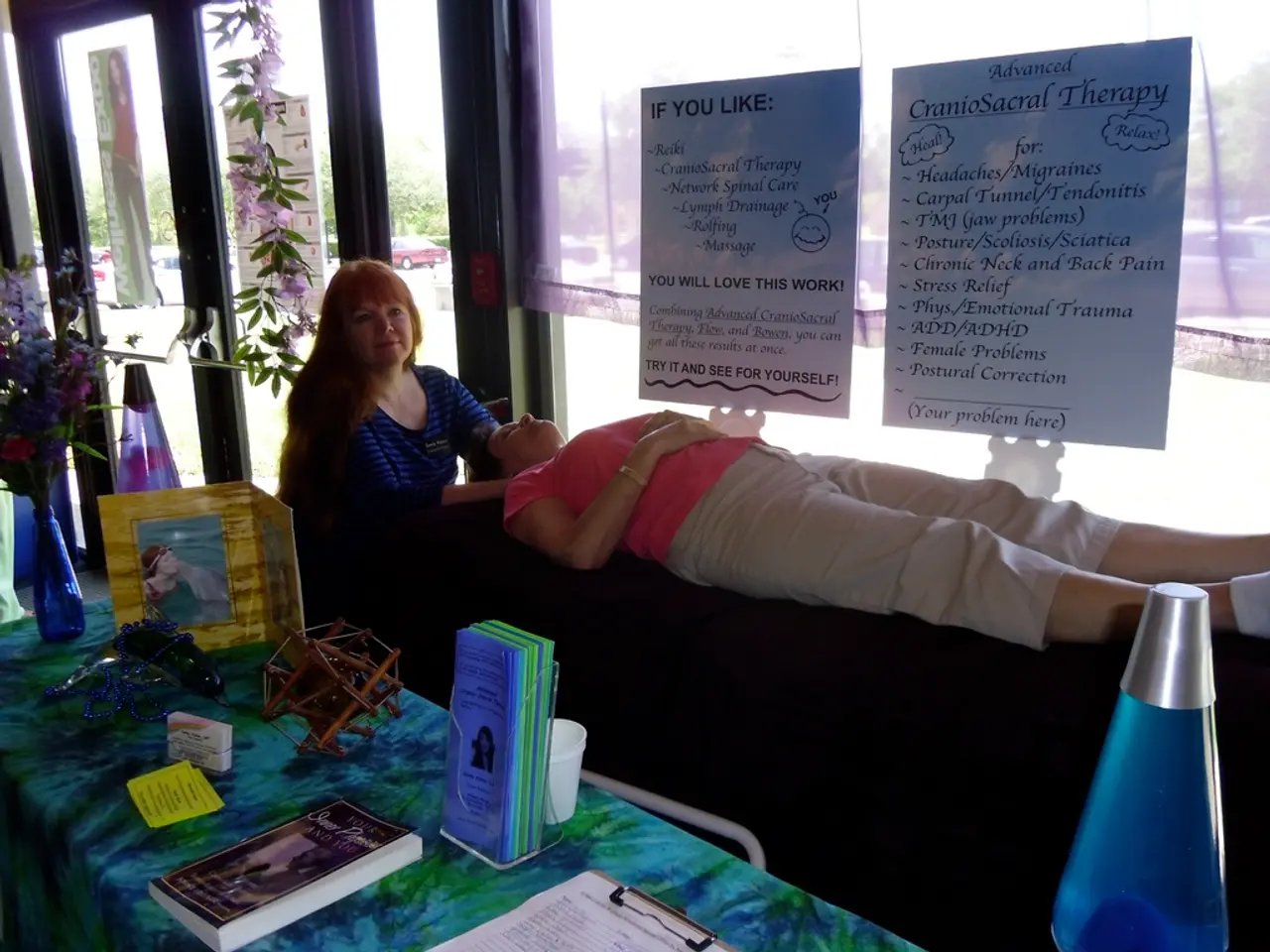Therapy Strategies for Managing Post-Traumatic Stress Symptoms
PTSD, or Post-Traumatic Stress Disorder, is a mental health condition that can occur after experiencing or witnessing any traumatic event. This condition can be treated with a variety of methods, including therapy.
PTSD diagnosis is primarily made by a mental health specialist such as a psychologist, psychiatrist, or clinical social worker. According to the DSM-5, certain criteria must be met for an accurate diagnosis, including exposure to death, injury, or violence, and the presence of symptoms for at least 1 month.
One of the most commonly recommended therapies for treating PTSD is Cognitive Behavioral Therapy (CBT). CBT aims to interrupt and challenge negative thoughts and beliefs related to trauma. Two types of CBT that have been shown to be particularly effective are Cognitive Processing Therapy (CPT) and Prolonged Exposure (PE).
Prolonged Exposure (PE) is a form of therapy that teaches you to confront trauma-related stimuli or situations gradually and systematically. Prolonged exposure typically consists of 8 to 15 sessions and may include an education element and breathing exercises.
Another effective treatment for PTSD is Eye Movement Desensitization and Reprocessing (EMDR). EMDR uses rapid eye movement to stimulate the brain, helping it process and heal from traumatic memories. EMDR is typically done in eight phases, including focusing on traumatic memories while focusing on another external stimulus.
Meditation and mindfulness techniques, such as yoga, meditation, and breathing exercises, can also help lessen intrusive feelings and thoughts and reduce overall PTSD symptoms.
Antidepressants, particularly Selective Serotonin Reuptake Inhibitors (SSRIs), may be used to help reduce depression or symptoms of anxiety in people with PTSD. The only SSRIs currently approved by the FDA to treat PTSD are sertraline (Zoloft) and paroxetine (Paxil). Other antidepressants that may be used include Selective Norepinephrine Reuptake Inhibitors (SNRIs), tricyclics, and monoamine oxidase inhibitors (MAOIs).
However, it's important to note that Topiramate, an anti-seizure medication, has been shown to have potential for treating PTSD, but there's not enough evidence to recommend it as a first-line treatment. Topiramate has a higher chance of causing serious side effects than SSRIs.
Benzodiazepines are not recommended for PTSD due to a lack of evidence supporting their ability to treat PTSD and evidence suggesting they might make symptoms worse.
A 2020 literature review suggests that the SSRI fluoxetine (Prozac) and the SNRI venlafaxine (Effexor) may be helpful for treating PTSD, although they are not approved for this use by the FDA.
MDMA (otherwise known as molly or ecstasy) has excellent potential for treating PTSD and is currently in phase 3 trials in the United States for PTSD. MDMA-assisted therapy is slated to be approved as a treatment for PTSD by the FDA within the next few years.
Exercise can help reduce symptoms associated with PTSD and improve conditions that may co-occur with PTSD, such as anxiety, depression, sleep disturbances, and heart disease.
PTSD is linked to reductions in healthy eating habits, increasing the association between cardiometabolic disease and PTSD. Resolving deficiencies in specific vitamins and minerals can reduce the severity of PTSD-related symptoms.
The most commonly recommended therapies for treating PTSD include Trauma-Focused Cognitive Behavioral Therapy (TF-CBT), Eye Movement Desensitization and Reprocessing (EMDR), and Trauma-Focused Mentalization-Based Therapy (MBT-TF), which focus on processing traumatic memories, modifying distressing thought patterns, and rebuilding emotional stability in a safe setting.
In conclusion, PTSD is a treatable condition, and various therapies and medications can help manage its symptoms. It's essential to seek help from a mental health specialist for an accurate diagnosis and treatment plan.
Read also:
- Nightly sweat episodes linked to GERD: Crucial insights explained
- Antitussives: List of Examples, Functions, Adverse Reactions, and Additional Details
- Asthma Diagnosis: Exploring FeNO Tests and Related Treatments
- Unfortunate Financial Disarray for a Family from California After an Expensive Emergency Room Visit with Their Burned Infant








